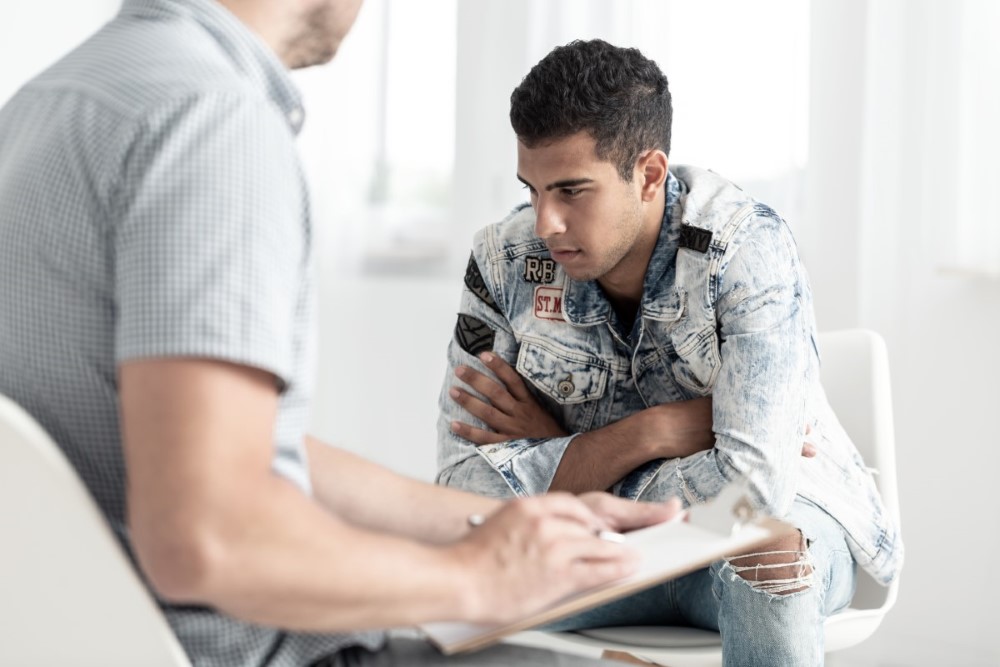The Dilemma of Forced Rehab: Individual Rights vs. Public Health

Forced rehabilitation emerges as a contentious topic when discussing addiction treatment. It’s a scenario where individuals are compelled into treatment programs, often without their consent. This raises fundamental questions about personal autonomy, especially when set against the backdrop of public health concerns.
Public health often necessitates actions for the greater good, particularly in combating substance abuse epidemics. In these instances, the argument is that forced rehab can mitigate broader social and health-related consequences of substance abuse, such as increased crime rates or the spread of infectious diseases. This perspective views addiction not just as a personal issue, but as a public health crisis requiring collective action. On the flip side, forced rehab directly challenges the principle of personal autonomy. It brings up ethical questions about an individual’s right to choose or refuse treatment. The core of this argument lies in respecting an individual’s freedom and understanding that forced treatment might not be as effective if the person is not voluntarily committed to recovery.
There’s an ongoing debate over the effectiveness of forced rehabilitation. Some argue that without the individual’s buy-in, the chances of long-term recovery are slim. Others point to instances where forced rehab has been a turning point for individuals, leading to successful recovery. Research and case studies on this topic are critical in informing this debate.
Legal and Ethical Implications
The legal and ethical ramifications of forced rehab are complex. Laws vary widely, with some regions supporting forced rehab under specific circumstances, while others view it as a violation of human rights. The challenge lies in balancing the need for public safety with respecting individual liberties.
Navigating the Balance – Individual Health and Public Health Perspectives
Understanding the difference between individual health care and public health is crucial. In personal health care, the focus is on the individual within their familial and community context. Conversely, public health places emphasis on the health of entire populations, recognizing that expressions of illness are intertwined with the lives of individuals.
Unveiling Healthcare Human Rights Violations
Human rights violations in healthcare often involve discrimination and the failure to ensure proper informed consent. Instances where a patient’s right to access healthcare services is violated, along with infringements on dignity and the right to make decisions about one’s health and body, exemplify these violations.
Respecting Autonomy in Public Health
The principle of respect for autonomy in public health is fundamental. This principle obliges healthcare professionals to disclose necessary medical information, enabling patients to exercise self-determination. It supports crucial aspects such as informed consent, truth-telling, and the preservation of confidentiality, fostering a relationship built on trust and collaboration.
Common Human Rights Violations
Several human rights violations persist, including denying health services and information, workplace discrimination based on race and gender, inadequate maternity leave provision, and failure to ensure a sufficient minimum wage. These violations highlight the ongoing challenges in upholding fundamental rights across various domains.
In exploring the delicate balance between individual rights and public health concerns, “Personal Autonomy vs. Public Health: Striking a Balance” delves into the complexities. It provides insights into how this balance plays out, particularly in contexts like forced rehab. Understanding these dynamics is crucial for navigating the intricate relationship between personal autonomy and broader public health goals.
Personal Autonomy vs. Public Health
1. Informed Decision-Making Resources: Empowering Your Choices:
Access reliable information sources that empower you to make informed decisions about your health. Utilize reputable websites, government health portals, and educational materials that provide insights into various health options, ensuring you can make choices aligned with your values.
2. Supportive Community Networks: Finding Strength in Shared Experiences:
Connect with community networks that understand the delicate balance between personal autonomy and public health concerns. Online forums, support groups, and community organizations can offer valuable insights, shared experiences, and emotional support as you navigate complex healthcare decisions.
3. Legal Resources for Healthcare Rights: Knowing Your Entitlements:
Familiarize yourself with legal resources that outline your healthcare rights and protections. Explore local and national healthcare laws, patient advocacy groups, and legal advice services to ensure you are aware of your entitlements and can advocate for your autonomy within the legal framework.
4. Healthcare Decision-Making Tools: Structuring Your Choices:
Explore decision-making tools designed to guide you through healthcare choices while considering both personal autonomy and public health considerations. These tools may include decision matrices, pros and cons lists, and structured frameworks that help you weigh the impact of your decisions on both an individual and societal level.
5. Mental Health Support Services: Navigating Emotional Well-being:
Prioritize your mental health by accessing support services. Therapists, counselors, and mental health helplines can provide guidance and a safe space to discuss the emotional challenges associated with balancing personal autonomy and public health concerns. Seeking professional mental health support ensures a holistic approach to well-being in complex healthcare situations.
If you’re intrigued by the delicate balance between personal autonomy and public health, especially in the context of forced rehabilitation, I invite you to delve deeper into this conversation with us. It’s a topic that touches on fundamental aspects of human rights, ethics, and societal responsibility. Your insights and perspectives are crucial in enriching this discourse. Let’s explore together the various facets of this issue, understanding its complexities and nuances. Join us in this important discussion, sharing your thoughts and experiences, as we navigate the challenging yet essential terrain of addiction treatment and public welfare.




